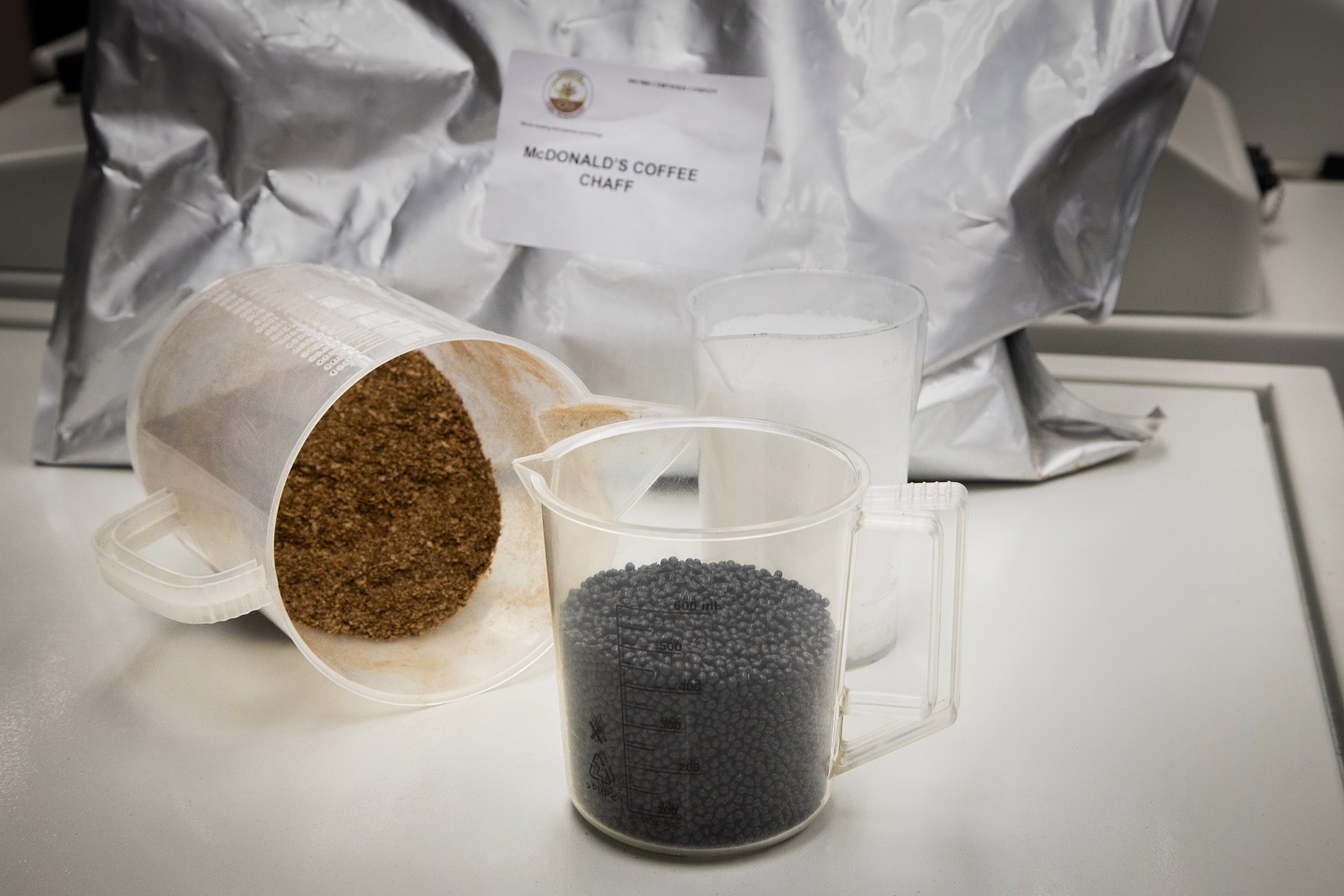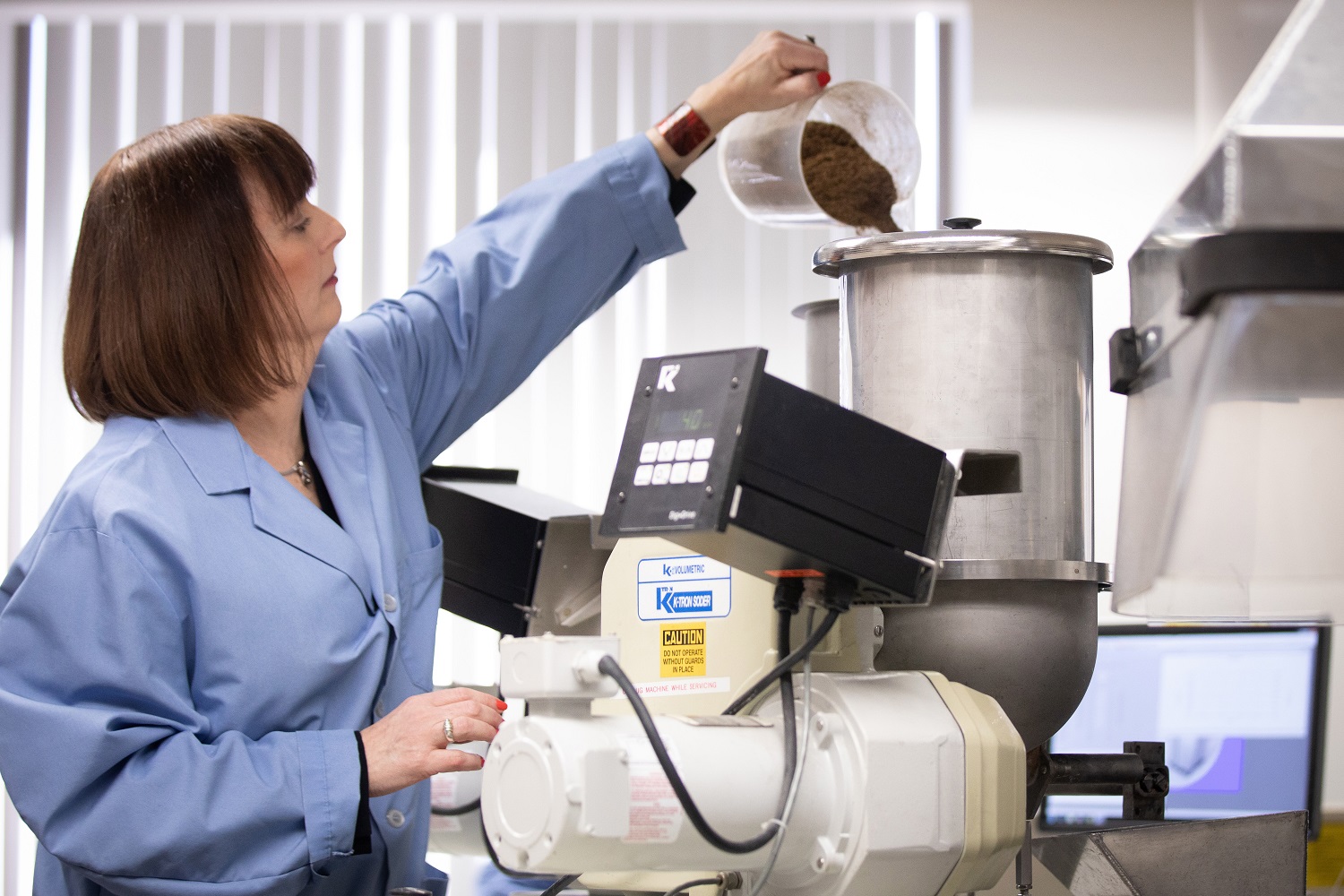McDonald’s will soon start sending Ford a significant amount of garbage. The Blue Oval isn’t branching out into the waste processing business, but it found an innovative way to replace plastic with a natural byproduct of the coffee-roasting process.
Chaff, the coffee bean’s dried skin, is at the center of this unlikely partnership. It peels off as the beans roast, and it’s normally thrown away, but engineers found a place for it on the assembly line. It’s heated to a very high temperature in a low-oxygen environment, blended with plastics and other additives, and turned into pellets to create a new, sustainable material. It’s also 20% lighter than a comparable plastic part, and making it requires 25% less energy.
Debbie Mielewski, Ford’s senior technical leader of sustainable materials, explained the new material is better than the one it replaces. It’s easier on the environment, and it’s capable of withstanding higher temperatures. Her team initially plans to use it to manufacture headlight housings (the frame the rest of the light, including the lens, is mounted to), plus other bits and pieces found in the cabin and under the hood. You could conceivably put a cup of coffee in a cupholder made with coffee. The material is relatively hard, so it can’t replace the soft-touch parts of your car.
This isn’t a pie-in-the-sky material that will reach production in a few decades. McDonald’s announced it will begin forwarding a significant amount of the chaff it generates in North America to Ford so that it can be integrated into the manufacturing process. The Ranger, the company’s smallest pickup truck, will inaugurate the material. Looking ahead, Ford plans to use coffee chaff in more cars, and it will continue working with McDonald’s to find sustainable ways to use waste.
The percentage of garbage found in cars will grow during the 2020s. Researchers at Ohio State University are experimenting with ways to use tomato skins as an alternative to the carbon black found in rubber parts like tires, hoses, and suspension bushings. The team also realized eggshells ground into a fine powder can reinforce the aforementioned components.








